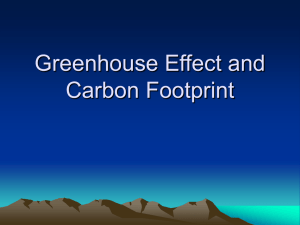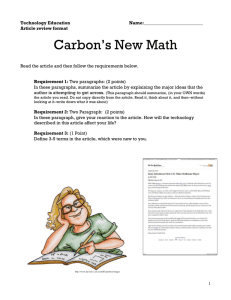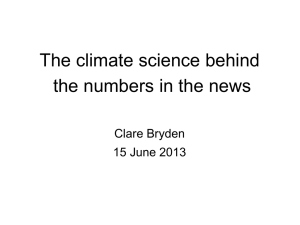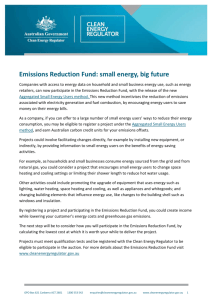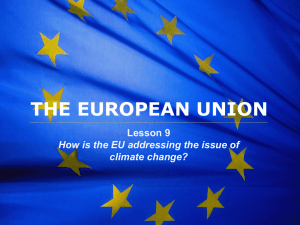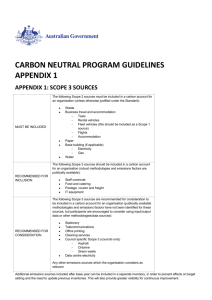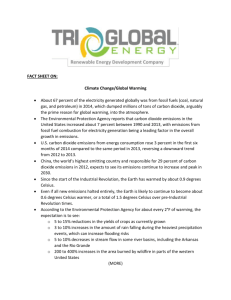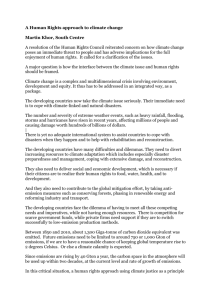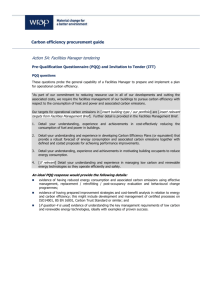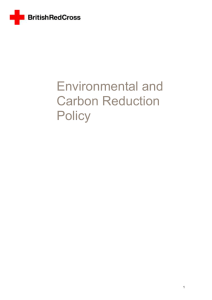Global Warming and Carbon Dioxide Emissions
advertisement
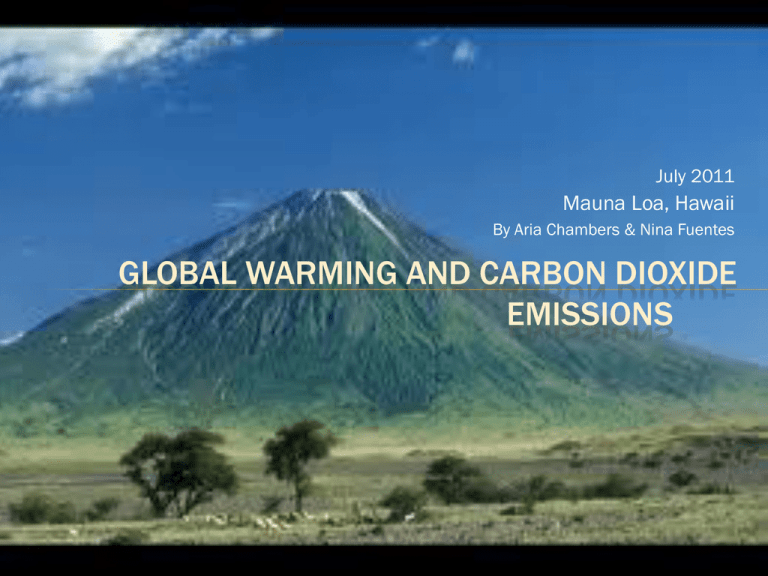
July 2011 Mauna Loa, Hawaii By Aria Chambers & Nina Fuentes GLOBAL WARMING AND CARBON DIOXIDE EMISSIONS WHAT IS MAUNA LOA? The largest volcano on Earth! Located on the island of Hawaii It is called Mauna Loa meaning, “The Long Mountain” Last erupted in 1984 AVG. YEARLY TEMP IN DEGREES 5 FAHRENHEIT (1960-2010) Every years Year Temperature 48 Temp 47.5 1960 (t= 0) 44.45 1965 (t=5) 43.29 1970 (t=10) 43.61 1975 (t=15) 43.35 1980 (t=20) 46.66 47 46.5 46 Temperature 45.5 1985 (t=25) 45.71 45 1990 (t=30) 45.53 44.5 1995 (t=35) 45.86 44 2000 (t=40) 46.23 43.5 2005 (t=45) y = 0.0718x + 43.607 R² = 0.5423 Linear (Temperature) Linear (Temperature) r = 0.736 43 0 20 AVG. YEARLY TEMPERATURE 40 60 AVERAGE CO₂ EMISSIONS (1960-2010) 400 CO₂ Emissions (PPM) Year 0 316.9 y = 1.4085x + 312.53 R² = 0.9878 350 5 320300 10 325.7250 15 331.1 20 338.7 25 345.9150 30 354.2100 35 360.6 40 369.4 45 379.7 CO2 Emissions (PPM) 200 CO2 Emissions (PPM) Series1 Linear (Series1) 50 r = 0.993 0 0 20 40 60 CARBON DIOXIDE EMISSION LEVELS Definition: The current rise in average temperature of Earth’s oceans and atmosphere. How it affects living beings: Sea Ice & Glaciers Melt Birds stay up North More intense hurricanes Sea level rises My Answer: Yes DO THESE MODELS SUPPORT “GLOBAL WARMING????” CONCLUSIONS…… For both sets of data the graphs linear graphs increase. In particular both sets of data show that as more time passed, both the average yearly temperature and the carbon emissions levels increased. However the correlation is stronger for carbon emissions than that for measuring the average yearly temperature. This is indicated by each correlation coefficient. These results indicate that global warming is an issue that needs to studied for the future of the planet.

